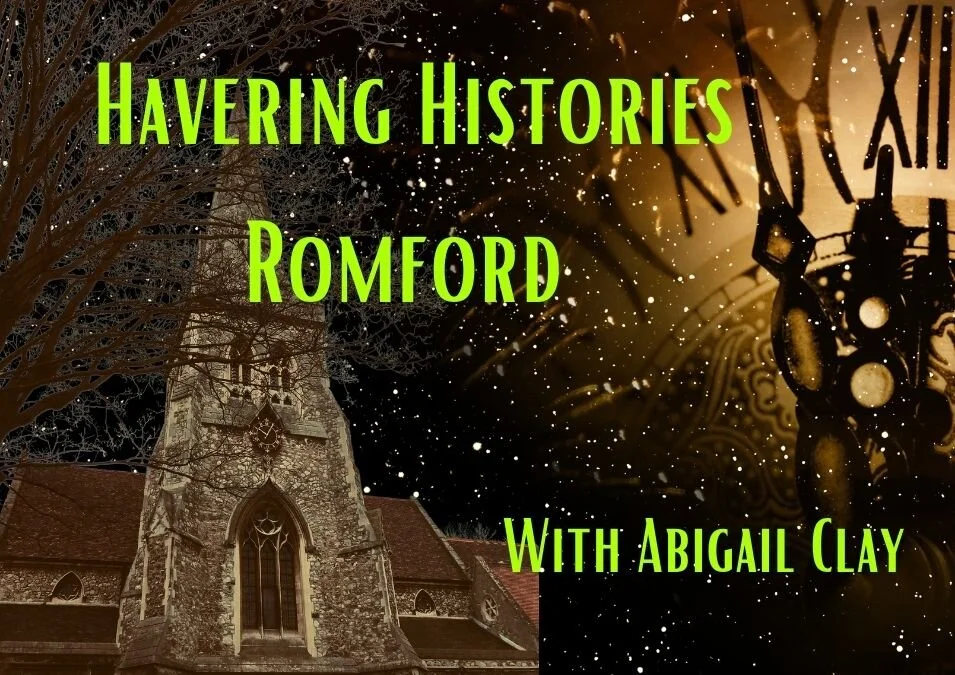Havering Histories Romford
Havering Histories - Bringing Romford's History to Life!
We are delighted to bring a new creative project to Romford town centre in partnership with filmmaker and actor, Abigail Clay.
Havering Histories - Romford, is a new series of short videos, placing local residents in the context of Romford’s history. Abigail created the project after moving to the area and as a newcomer, realising how far back Romford's history goes. Abigail specialises in working with adults with learning disabilities and is currently seeking an organisation in the Romford area to partner with in the participation and delivery of the project.
Participants will have the choice to be involved with making a large visual version of the timeline on display boards, acting in the video, or helping behind the camera. They do not need any prior experience, only interest and enthusiasm!
Those in the visual arts group will create a large timeline, complete with illustrations, whilst the filmmaking group will recreate scenes from Romford’s history, shooting on location in Romford and in a studio setting. In each section of the project, participants’ ideas will be integrated and all activities will be carried out in adherence to national restrictions and in a COVID-secure environment.
We'll be inviting local people who live in Romford to add themselves to the timeline and to be interviewed on camera to add their stories to the final film. Some may have lived here for 50 years, others for 6 months and we'll be asking them all about their experiences and stories of living in Romford, along with what they feel is the most memorable thing about Romford.
The film will have it's very own screening both in person (COVID restrictions permitting) and online, providing a permanent legacy of the history of Romford and its residents.
If you are a Romford-based organisation supporting adults with learning disabilities and would like speak to us about partnering us in this exciting project, or if you have questions about accessibility and the project, please contact hello@haveringchanging.org
The benefits of the Havering Histories video series include:
Developing artistic engagement (performing, creating visual art, film-making)
Developing engagement with local heritage
Involving adults with learning disabilities, who typically engage less in these activities
Encouraging participants to shape the project and including their ideas in performing and creating at each step
Encouraging integration by residents from different segments of the community through engagement with the timeline and the interviews Involving as many people as possible through each step of the project, and engaging as large an audience as possible to see the final videos
Engaging with local history experts and with Abigail, a professional actor and filmmaker
About the artist Abigail Clay
Abigail’s younger sister has Down’s Syndrome, and she has worked with people of all ages with learning disabilities throughout her professional life. This has included working as a residential carer at a charity for people with learning disabilities, providing 1-to-1 PA support, and creating programmes of activities for children and adults with learning disabilities, such as social events, performing arts, visual arts, history, and trips to National Trust properties and art galleries.
Abigail created a storytelling YouTube channel in the March 2020 lockdown, where she honed her filming and editing skills. One of her most popular videos told the history of Hadlow Tower, a famous landmark which she can see from the bedroom window of her family home. Abigail was able to include her family and some neighbours in this video, which added to the community feel of the project. Abigail is therefore delighted to present a proposal which brings these two aspects together - videos which tell the fascinating histories to be found in Havering, in collaboration with adults with learning disabilities and additional needs. She believes in the importance of integrating the most isolated members of our communities, which helps fight ignorance about conditions such as learning disabilities, and brings the opportunity to socialise to those who have fewer chances to do so.


